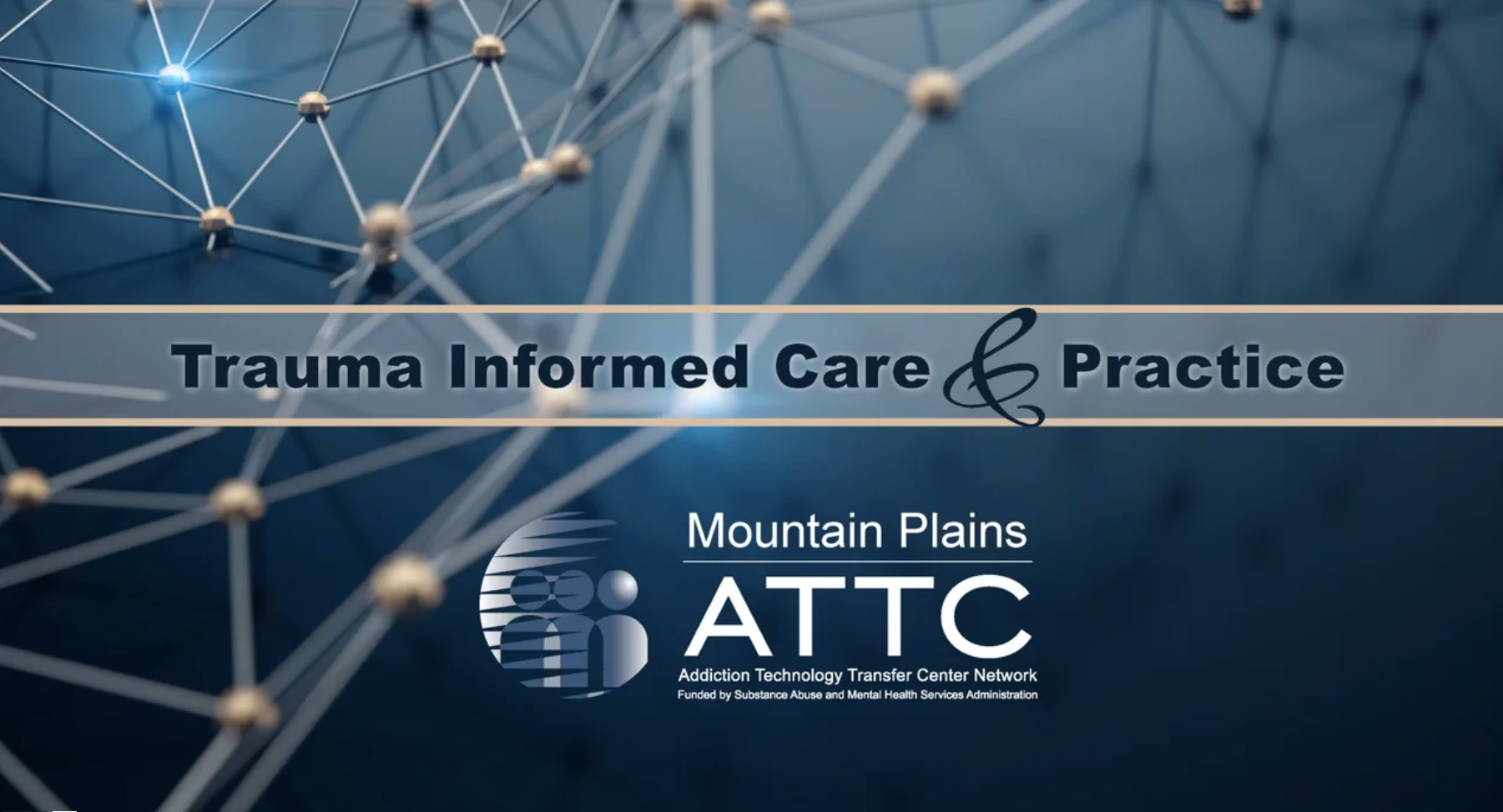
Co-Director of Mountain Plains ATTC, Thomasine Heitkamp, interviews a national expert on trauma informed care, Dr. Tami DeCoteau, who offers insight to providers and educators interested in gaining a deeper understanding of trauma, including content on historical trauma and adverse childhood experiences. This 60-minute video interview presentation created by Mountain Plains ATTC is designed as a professional learning tool to explore how trauma affects the human population.
The science of trauma-informed care compells us to look more deeply into the human physiological process and understand how DNA provides evidence of intergenerational trauma. Recent research has shown that emotional trauma often affects the human nervous system long-term. Study of epigenetic DNA demonstrates that the substance use disorder need for self-regulation via alcohol or drugs is actually a physiological process and not a moral choice. This video will address questions such as:
The production is conveniently separated into topic modules with designated time codes to allow viewers to determine which subjects will be reviewed and how much time is necessary to cover each area of discussion.
Topic Modules | Time Codes
Section I – Intro and General Overview 00:00 (10 min 54 sec)
Definition and Explanation
Triggers
Adverse Childhood Experiences
Addressing Trauma
Brain Development
Complex Developmental Trauma
Trauma and Addiction
Section II -- Treatment for Secondary Trauma 10:54 (11 min 9 sec)
Self-Regulation Skills
Brain and Nervous System
Epigenetics Research
Integrated Care
Returning Veterans
Strategies for Self-Regulation
Section III -- Evidence-Based Practices in Tribal Communities 22:03 (6 min 1 sec)
Boarding Schools
Relationship Trauma
Intergenerational Effects
Federal Legislation
National Healthcare Model
Section IV – Integrated Trauma-Informed Care 28:04 (13 min 56 sec)
Substance Use Disorders
Big Ts and Little Ts
Section V – Moving Forward 42:00 (17 min 39 sec)
Education and Collaboration
Role of Technology
Clinical Advancements
Specialties
Wrap-Up
Presenter:
Tami DeCoteau, Ph.D., Licensed Clinical Psychologist
Dr. DeCoteauTami DeCoteau obtained a doctorate degree in Clinical Psychology in 2003 from the University of Nebraska-Lincoln with specialization in the cognitive-behavioral treatment of anxiety disorders for adults, adolescents, and children. She has extensive experience working with patients who suffer from complex trauma, neurodevelopmental disorders, grief, anxiety, depression, and suicidal thinking.
Her private practice in downtown Bismarck, North Dakota, is DeCoteau Trauma-Informed Care and Practice, PLLC, an outpatient facility where she heads a team of eight specialists in various fields of mental health. Dr. DeCoteau is a Trust-Based Relational Intervention (TBRI) practitioner. TBRI is a therapeutic model that trains caregivers to provide effective support for at-risk children. She is also trained in various trauma treatment modalities, including WEMDR, somatic processing, attachment intervention, neurosequential model of therapeutics (NMT) and TF-CBT.
Dr. DeCoteau has worked in a variety of outpatient settings and with a diverse patient population, including Veterans and Native Americans. She has given numerous lectures on how trauma impacts attachment and brain development, in-school strategies for working with traumatized children, and historical trauma. She is a long-standing member of the American Psychological Association, an enrolled member of the Mandan, Hidatsa, Arikara Nation and a descendant of the Turtle Mountain Band of Chippewa.
Interviewer:
Thomasine Heitkamp, LICSW, Co-Director, Mountain Plains ATTC/HHS Region 8, Professor, University of North Dakota College of Nursing and Professional Disciplines
Ms. HeitkampThomasine Heitkamp is the Director of Mountain Plains Addiction Technology Transfer Center that serves the six states in SAMHSA Region 8. She is also the Region 8 Administrator for the American Academy of Addiction Psychiatry (AAAP) grant to advance technical assistance for prevention and treatment of opioid use disorders. She is a Professor in the College of Nursing and Professional Disciplines at the University of North Dakota (UND) in Grand Forks and a Licensed Independent Clinical Social Worker in North Dakota. She has been an educator and administrator at the University of North Dakota for more than thirty years. Professor Heitkamp has served in a myriad of administrative capacities at UND, including her recent work as an Associate Provost and Chair of the Graduate Nursing Program. She has numerous publications and presentations describing her professional work including a recent study on the impact of the oil industry on interpersonal violence in the oil fields of Montana